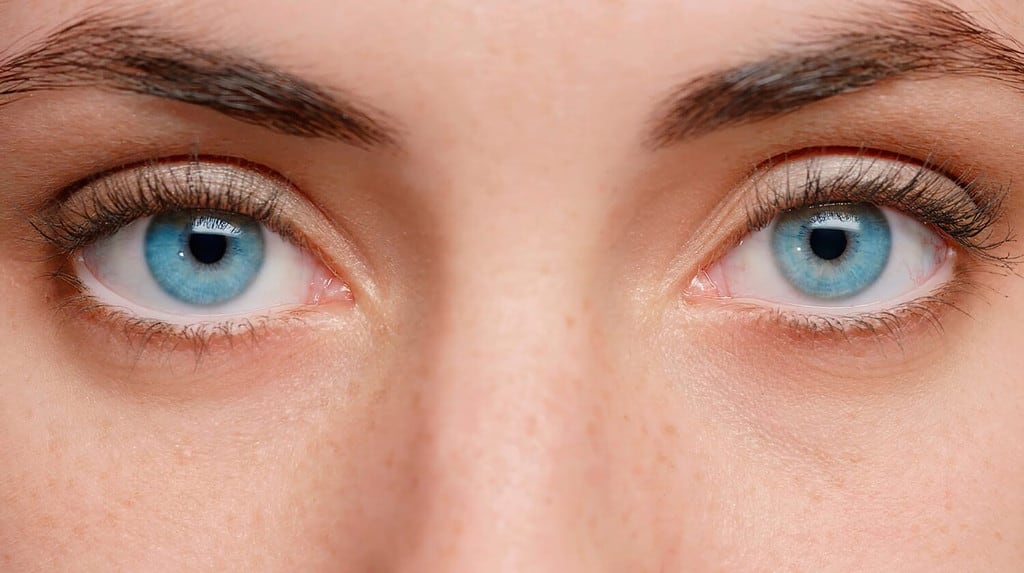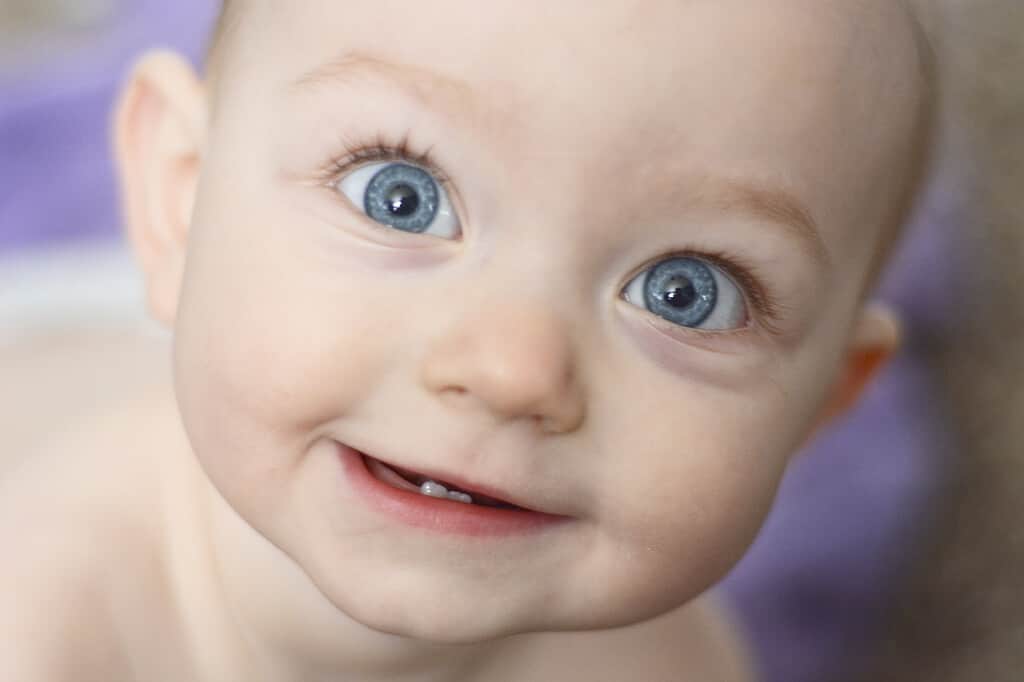Humans come in many variations. They can have a wide range of skin and eye colors. Some of these variations may have more or less melanin, which will cause them to respond differently to light, glare, or lack thereof. Why do humans have different eye colors, and what can make the color change with time? Blue eyes are the second most common eye color after brown, but do blue eyes see better in the dark than those with darker eyes? Let’s dive in and see what the experts say.
Differences in Light and Dark Colored Eyes

Blue eyes originated from a gene mutation that took place up to 10,000 years ago in Europe.
©sashamol/Shutterstock.com
People with blue eyes are far from rare. Percentages of people with different eye colors worldwide break down as follows: brown 45%, blue 27%, hazel 18%, green 9%, and grey less than 1%. Those with lighter-colored eyes may start out that way at birth, as many babies do, then darken over time as more melanin is introduced. This also applies to hair color. Many children may start life out with white-blond hair that, over time, becomes dirty blond or even brown. Children born with brown eyes can become a deeper shade of brown over their lives. It is rare to have someone’s eyes evolve the opposite way, but it does happen.
When studied, brown eyes are viewed as more trustworthy than those with lighter-colored eyes. Also, people with blue eyes have little variation in their melanin-producing DNA, meaning they can be traced back to a common ancestor. Blue eyes didn’t exist as far back as 10,000 years ago. Scientists have pinpointed that blue eyes originated in the Black Sea Region of southeastern Europe somewhere in the ballpark of 6,000 – 10,000 years ago. The person with blue eyes has a gene mutation. They passed down the mutation to their children, and so it began.
Do Blue Eyes See Better in the Dark?

A baby’s eyes may change as they get older. However, most children have their permanent eye color by the age of six.
©Tamilisa Miner/iStock via Getty Images
People with brown eyes have more melanin and less reflective light that passes through their eyes. Because of this, darker-eyed people can see better in the bright light than at night. People with lighter-colored eyes have very little melanin and have many issues with bright days or lights. They can, however, see better at night than those with darker-colored eyes. This all comes down to lighter eyes reflecting light better than darker eyes. Those with lighter eyes do not do as well as darker-eyed people when driving at night around traffic because of the light sensitivity from headlights.
Sports optometrist Dr. Donald Teig discussed the impact of light on a player’s light-colored eyes and the impact it can have saying, “The root of the problem is that light-eyed people lack pigment in their macula, which is a little dot, about the size of a pinhead, that sits conveniently in the most centralized portion of the eye as light passes through your pupil to get to your retina.” “It really handles the impact of light better the more pigmented it is,” Teig said.
The overall answer is yes; blue eyes can typically see better in the dark, and this is entirely due to the reflective quality found within low melanin-containing eyes, like blue eyes. If you need a glass of water while at a vacation house or hotel in the middle of the night, turn the light on unless you’re brave and have light or blue-colored eyes!
The photo featured at the top of this post is © AlexeyVladimir/iStock via Getty Images
Thank you for reading! Have some feedback for us? Contact the AZ Animals editorial team.






